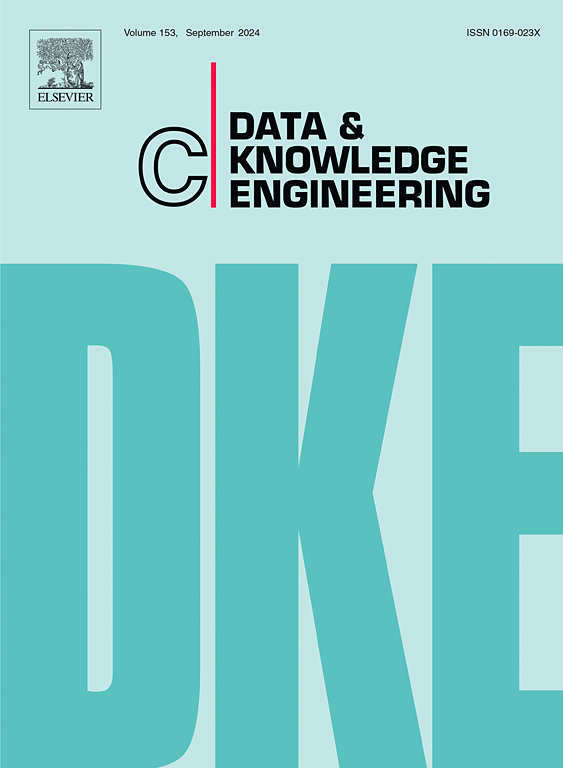ELEVATE-ID: Extending Large Language Models for End-to-End Entity Linking Evaluation in Indonesian
IF 2.7
3区 计算机科学
Q3 COMPUTER SCIENCE, ARTIFICIAL INTELLIGENCE
引用次数: 0
Abstract
Large Language Models (LLMs) have demonstrated remarkable performance across a wide range of natural language processing tasks. However, their effectiveness in low-resource languages remains underexplored, particularly in complex tasks such as end-to-end Entity Linking (EL), which requires both mention detection and disambiguation against a knowledge base (KB). In earlier work, we introduced IndEL — the first end-to-end EL benchmark dataset for the Indonesian language — covering both a general domain (news) and a specific domain (religious text from the Indonesian translation of the Quran), and evaluated four traditional end-to-end EL systems on this dataset. In this study, we propose ELEVATE-ID, a comprehensive evaluation framework for assessing LLM performance on end-to-end EL in Indonesian. The framework evaluates LLMs under both zero-shot and fine-tuned conditions, using multilingual and Indonesian monolingual models, with Wikidata as the target KB. Our experiments include performance benchmarking, generalization analysis across domains, and systematic error analysis. Results show that GPT-4 and GPT-3.5 achieve the highest accuracy in zero-shot and fine-tuned settings, respectively. However, even fine-tuned GPT-3.5 underperforms compared to DBpedia Spotlight — the weakest of the traditional model baselines — in the general domain. Interestingly, GPT-3.5 outperforms Babelfy in the specific domain. Generalization analysis indicates that fine-tuned GPT-3.5 adapts more effectively to cross-domain and mixed-domain scenarios. Error analysis uncovers persistent challenges that hinder LLM performance: difficulties with non-complete mentions, acronym disambiguation, and full-name recognition in formal contexts. These issues point to limitations in mention boundary detection and contextual grounding. Indonesian-pretrained LLMs, Komodo and Merak, reveal core weaknesses: template leakage and entity hallucination, respectively—underscoring architectural and training limitations in low-resource end-to-end EL.1
在印尼语中扩展端到端实体链接评估的大型语言模型
大型语言模型(llm)在广泛的自然语言处理任务中表现出了卓越的性能。然而,它们在低资源语言中的有效性仍未得到充分探索,特别是在复杂的任务中,如端到端实体链接(EL),这需要对知识库(KB)进行提及检测和消歧。在早期的工作中,我们引入了IndEL——第一个针对印尼语的端到端EL基准数据集——涵盖了一般领域(新闻)和特定领域(来自印尼语古兰经翻译的宗教文本),并在该数据集上评估了四个传统的端到端EL系统。在本研究中,我们提出了ELEVATE-ID,这是一个综合评估框架,用于评估印尼法学硕士在端到端EL方面的表现。该框架使用多语言和印度尼西亚单语言模型,以维基数据作为目标知识库,在零射击和微调条件下评估法学硕士。我们的实验包括性能基准测试、跨域泛化分析和系统误差分析。结果表明,GPT-4和GPT-3.5分别在零射击和微调设置下具有最高的精度。然而,即使是经过微调的GPT-3.5,与DBpedia Spotlight(传统模型基线中最弱的一个)相比,在一般领域的表现也不佳。有趣的是,GPT-3.5在特定领域的表现优于Babelfy。泛化分析表明,优化后的GPT-3.5能够更有效地适应跨域和混合域场景。错误分析揭示了阻碍LLM性能的持续挑战:在正式上下文中出现不完整提及、首字母缩略词消歧和全名识别的困难。这些问题指出了提及边界检测和上下文基础的局限性。印度尼西亚预训练的法学硕士,Komodo和Merak,揭示了核心弱点:模板泄漏和实体幻觉,分别强调了低资源端到端el的架构和培训限制
本文章由计算机程序翻译,如有差异,请以英文原文为准。
求助全文
约1分钟内获得全文
求助全文
来源期刊

Data & Knowledge Engineering
工程技术-计算机:人工智能
CiteScore
5.00
自引率
0.00%
发文量
66
审稿时长
6 months
期刊介绍:
Data & Knowledge Engineering (DKE) stimulates the exchange of ideas and interaction between these two related fields of interest. DKE reaches a world-wide audience of researchers, designers, managers and users. The major aim of the journal is to identify, investigate and analyze the underlying principles in the design and effective use of these systems.
 求助内容:
求助内容: 应助结果提醒方式:
应助结果提醒方式:


